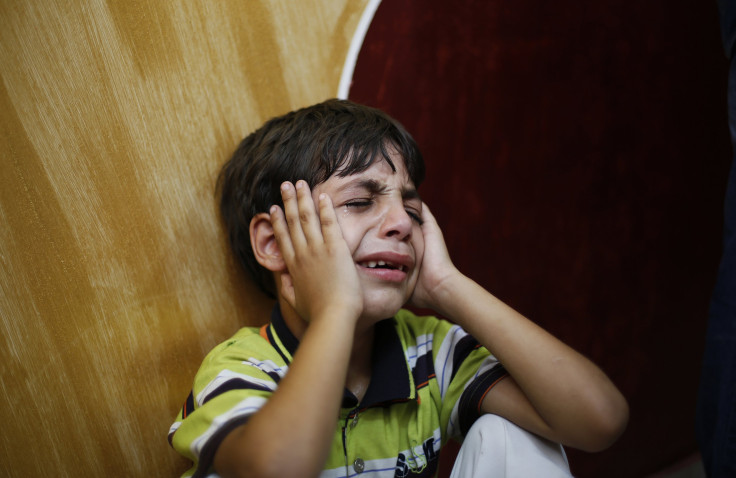Psychological Child Abuse Damage May Surpass Effects Of Physical, Sexual Abuse

Sexual torture and physical violence aren’t the only forms of abuse that leave children with lifelong scars. A new study finds psychological abuse can leave the same impressions, if not deeper ones, because of the inherent difficulties that come with treating invisible wounds.
Despite society’s changing attitudes toward mental health, as depression is largely considered more than extreme sadness and schizophrenics have been relieved of the myth that they have multiple personalities, mental health is a challenge. Kids that come to their doctors with bruises and complaints of aggressive touching have a far easier time getting help than kids who may seem withdrawn or tend to cry more often. Even on a macro scale, it’s easy to understand why.
“Psychological abuse isn't considered a serious social taboo like physical and sexual child abuse,” said the study’s lead author Dr. Joseph Spinazzola, of the Trauma Center at Justice Resource Institute, in a statement. Parents can’t hit their kids, but they can yell at them. They can insult them and they can dismiss them with a sharp tongue. But where we draw the line between firm parenting tactics and abuse remains blurry.
In their latest study, Spinazzola and his research team wanted to see if they could use hard facts to sharpen that line. Using data from a popular national registry on childhood abuse, they analyzed cases from 5,616 youths with lifetime histories of one or more of three types of abuse: physical abuse, sexual abuse, and psychological abuse, which included forms of emotional abuse and neglect.
Most of the children (62 percent) had endured a second or third form of abuse in addition to psychological abuse. Nearly a quarter (24 percent) had endured only psychological abuse, which the team described as some combination of bullying, terrorizing, coercive control, severe insults, debasement, threats, overwhelming demands, shunning, and isolation. Overwhelmingly, the kids who had been psychologically abused suffered mental illness, from anxiety and low self-esteem, to depression, post-traumatic stress disorder, and thoughts of suicide. Kids in this category, more than any other form of abuse, showed signs of substance abuse, social attachment problems, and general anxiety disorder.
While unsurprising to the researchers, who have spent entire careers developing an appreciation and respect for the brain’s refusal to let negatives experiences fade, the team hopes the findings can kickstart some awareness among the general public. Physical and sexual abuse are noticeable, so they get mainstream attention. Psychological abuse is covert, residing only in the mind, where trauma accumulates over time like an overstuffed closet, until one day it bursts.
"Child protective service case workers may have a harder time recognizing and substantiating emotional neglect and abuse because there are no physical wounds," Spinazzola said. Instead, they listen for clues. They ask probing questions that are designed to draw sensitive information from the child without implicating Mommy or Daddy as the bad guy. Maybe the child has developed new aggressive tendencies at school, or has suddenly started lashing out at the babysitter. Each insight builds a case.
With more than three million cases of maltreatment occurring annually, the American Academy of Pediatrics has recognized psychological maltreatment of children as perhaps “the most challenging and prevalent form of child abuse and neglect.” But that doesn’t mean the challenge is insurmountable. The real hurdle, as Spinazzola sees it, is one of awareness. The more parents are educated about what constitutes abuse, based on the lasting effects their behavior has on the child, the more likely they are to quit that behavior, he says.
“We need public awareness initiatives,” he said, “to help people understand just how harmful psychological maltreatment is for children and adolescents."
Source: Spinazzola J, Hodgdon H, Liang L, et al. Unseen Wounds: The Contribution of Psychological Maltreatment to Childand Adolescent Mental Health and Risk Outcomes. Psychological Trauma: Theory, Research, Practice, and Policy. 2014.



























